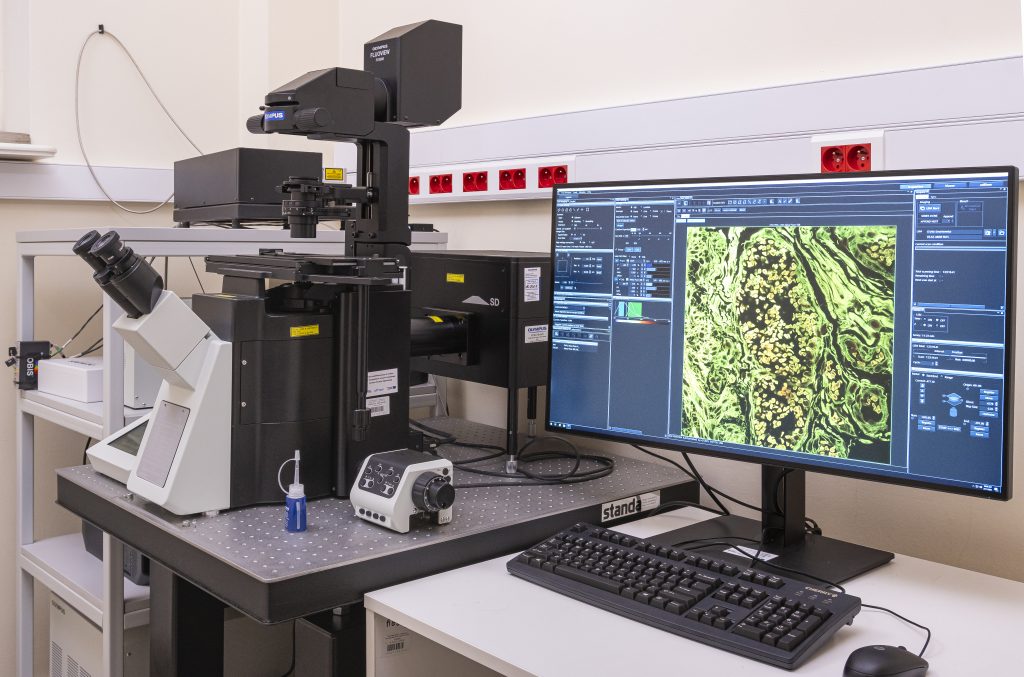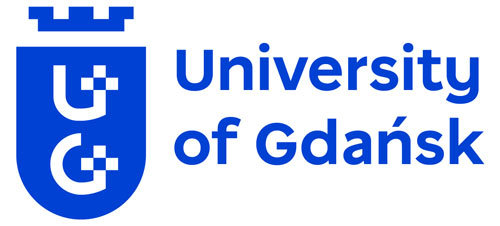ICCVS is located in the centre of Gdańsk with state-of-the-art laboratory space and top specialist research equipment (e.g. 5-laser FACS Aria Fusion, BD with laminar hood; Orbitrap Exploris 480 mass spectrometer, Thermofisher Scientific; FLUOVIEW FV3000 OLYMPUS confocal laser scanning microscope and INVIVO2 1000 dual hypoxia chamber, Ruskinn Baker).
ICCVS researchers have also access to other laboratory facilities of the University of Gdańsk. Close collaboration with the two other largest public universities in the region, Medical University of Gdańsk (MUG) and Gdańsk University of Technology (GUT), enables also access to the infrastructure of these universities. The Fahrenheit Union of the Universities in Gdańsk offers a web service facilitating joint use of equipment between the universities.
Thanks to the strategic partnership ICCVS researchers also have access to infrastructure and strategic platforms for Stem Cell Science, Phenotypic Drug Screening, Synthetic Biology, Bioinformatics and Veterinary Medicine at the University of Edinburgh.
This provides a great opportunity for researchers to pursue their own independent investigations as well as providing international multidisciplinary research and training programs for PhD students and staff.
ICCVS specialist research equipment
Mass Spectrometry Laboratory
Orbitrap Exploris 480 Mass Spectrometer
Exploris 480 is the most innovative instrument from tandem orbitrap family. Orbitrap Exploris 480 is a new model that has better resolution (480 000 vs 240 000 at 200 m/z) and sensitivity compared to HFX. This reduce false positives and identification of the peptides thus giving more confidence in the data. It can be upgraded with OptaMax NG source which is compatible with FAIMS Pro for more accurate identification and quantitation. It contains possibility of Phased Spectrum deconvolution method to improve acquisition rate of TMT experiments. Orbitrap Exploris 480 is made to simplify work for the operators.
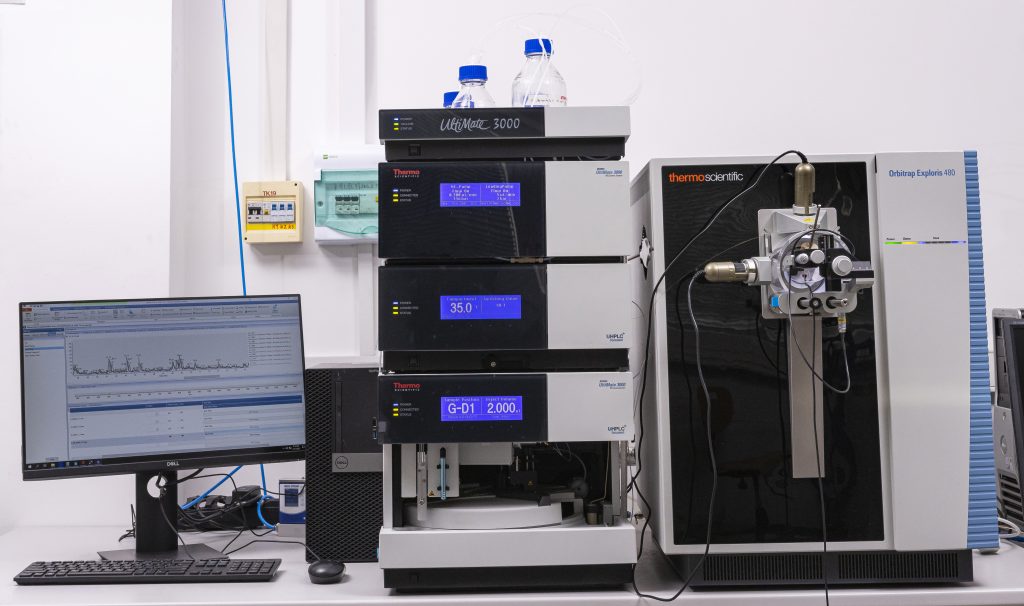
Ultimate 3000 RSLCnano System – low-flow liquid chromatography system
The wide flow range, high-pressure binary gradient pump, the additional micro-flow ternary gradient pump, and integrated column compartment with two snap-in switching valves makes the UltiMate 3000 RSLCnano suitable for virtually any low-flow LC or LCMS application such as bottom-up and top-down proteomics, or metabolomics.
Orbitrap LTQ XL
The LTQ Orbitrap XL is the comprehensive proteomics solution for protein ID, characterization and quantitation. The Orbitrap XL supports a wide range of applications from routine compound identification to analysis of low-level components in complex mixtures. It supports a wide range of applications, from routine compound identification to the most difficult low-level analysis of components in complex mixtures. Mainly used for lipidomics.
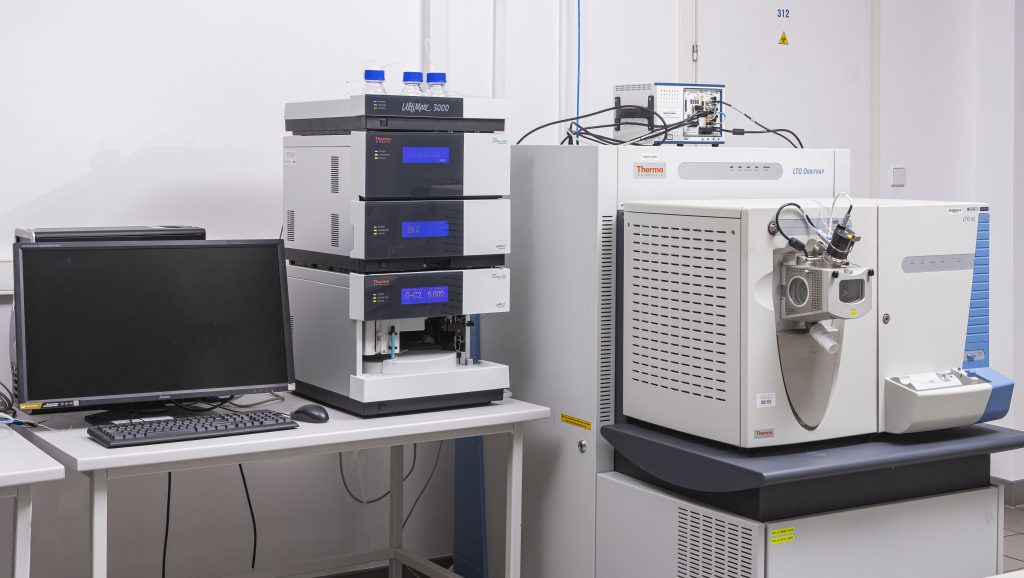
Barocycler NEP2320
Compact benchtop instrument, being able to handle up to 16 samples simultaneously – a unique, patented technique of sample processing based on repeated cycles of hydrostatic pressure between ambient and ultrahigh levels. The changes in pressure allow for accelerated proteolytic digestion with significantly decreased reaction errors and improved extraction of cellular components, proteins including native and unreduced antibodies and lipids, based on improved enzyme activity while being under pressure and enhanced target site availability of the substrates.
This provides speed and reproducibility for biopharmaceutical processing, yielding protein fragments or peptides ready for purification and analysis within 2-4 hours from the start of preparation.
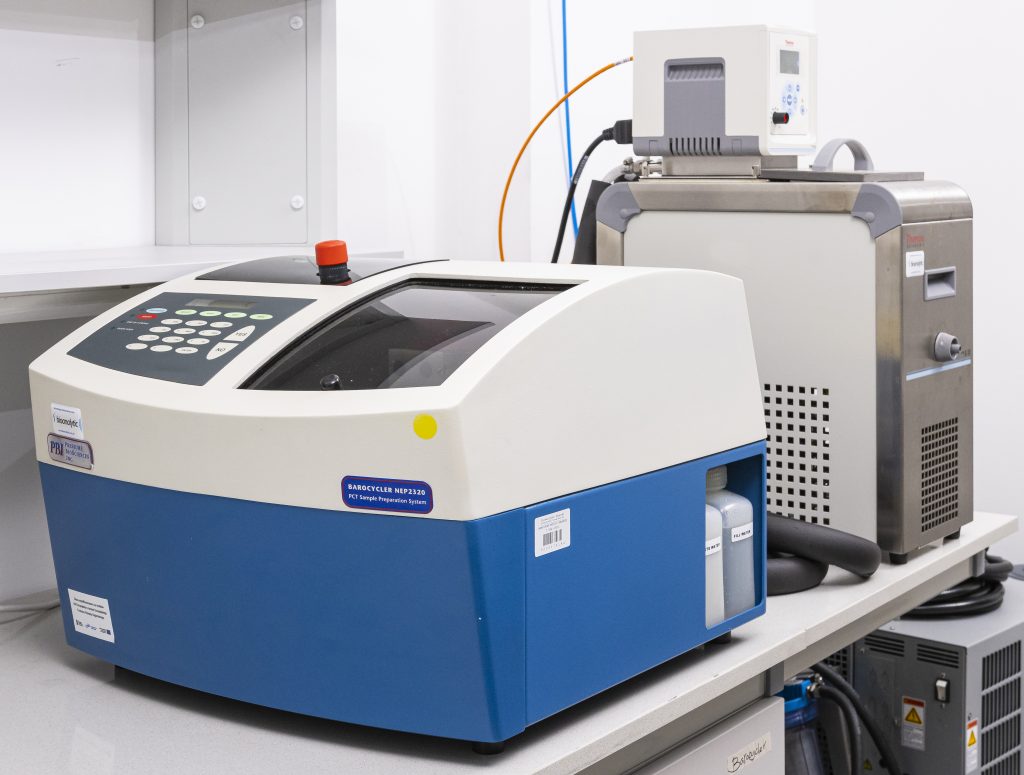
FTMS Booster – Booster data acquisition system
The high-performance FTMS Booster data acquisition system is a unique real-time signal processing technology. The FTMS Booster enables the visualization of transients in real time and helps to improve the sensitivity, dynamic range and resolution of data acquisition. These improvements are especially important in detecting small volumes of analyzed samples, e.g. immunopeptides or other compounds derived from samples whose volume is very limited and very small. The FTMS Booster is compatible with any Orbitrap ™ FTMS platform (LTQ Orbitrap ™, Exactive ™ and Fusion ™ Series).
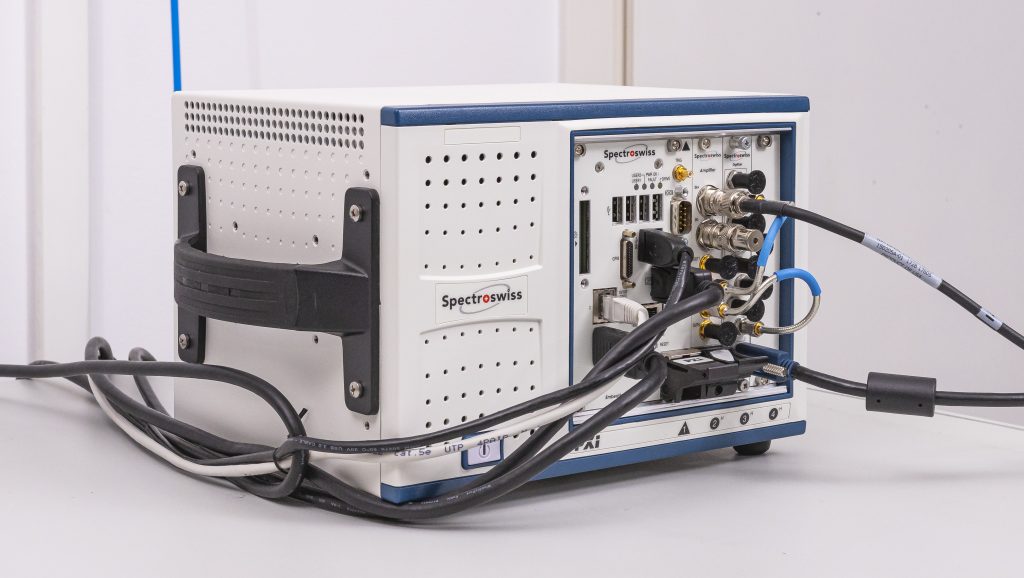
Cell Laboratory
BD FACSAria Fusion – flow cytometer
A fully digital sorter enabling the simultaneous measurement of 18 fluorescence on one cell, equipped with a computer station with software for control and analysis of multicolor fluorescence, integrated with a Class II A2 type laminar chamber. It is equipped with 5 air-cooled lasers and could sort cells into 4 populations simultaneously with an analysis speed of 70,000 counts / sec.
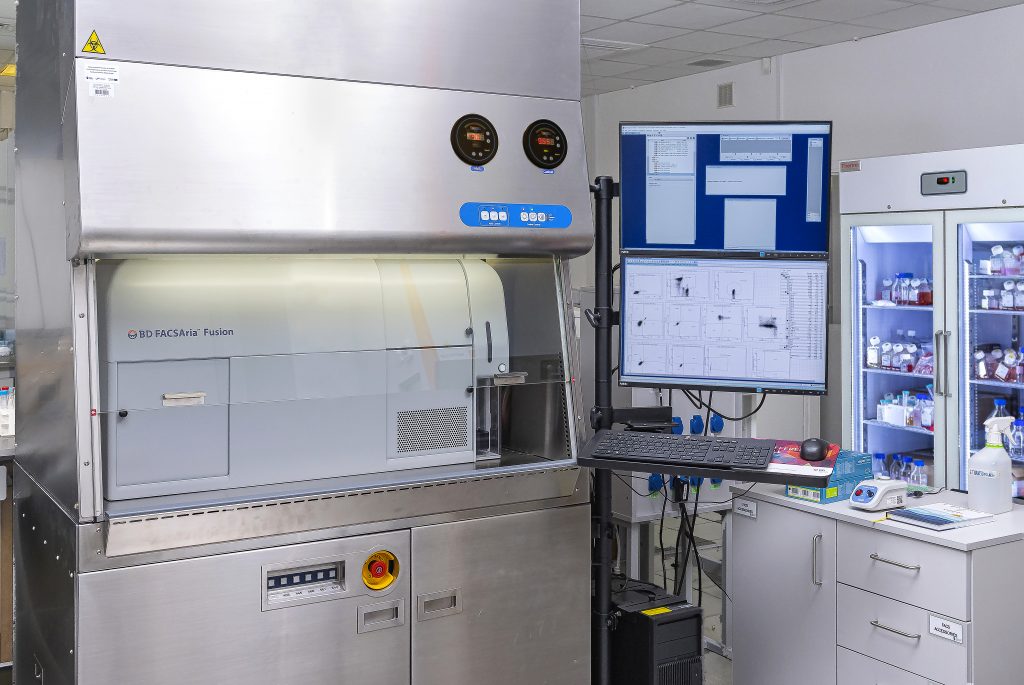
Invivo 1000 – hypoxia chamber
This is physiological cell culture workstation with two independently controllable chambers (each ≈200 L). Easy to use and adaptable, especially for cell culture applications that require carefully controlled oxygen regulation. It is allow to study even the most complex cell interactions under perfect physiological oxygen conditions.
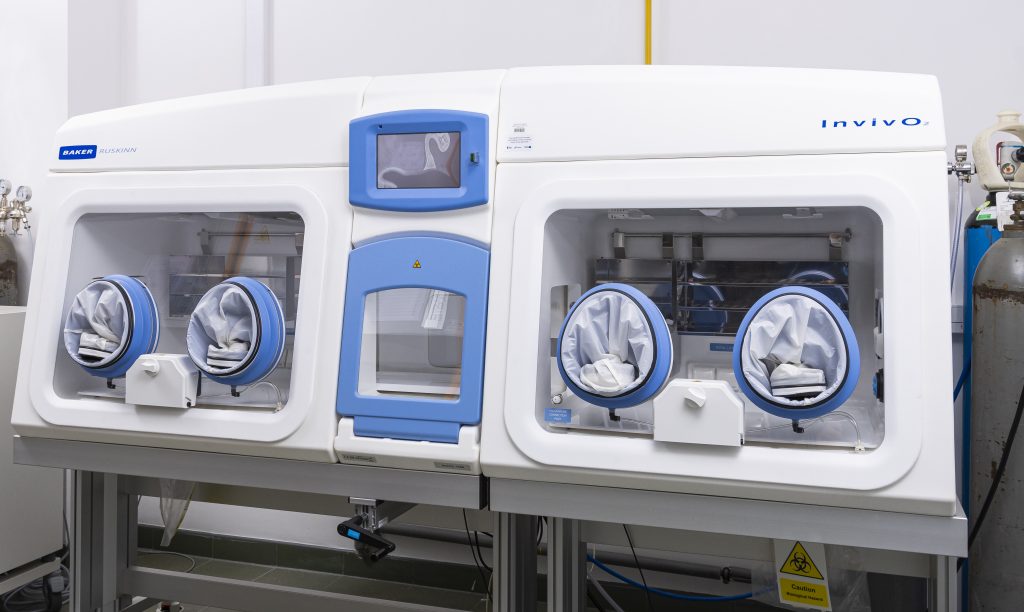
HypoxyCOOL – media conditioning system
This system allows quickly and precisely reduce the oxygen concentration in the culture medium to the level required by the user. During the process, sterility, pH and temperature of the culture medium are maintained. The standard protocol (parameters inside the chamber: 1% O2, 5% CO2, 120 rpm) allows the oxygen content in the medium to be reduced to 2% within 2 hours.
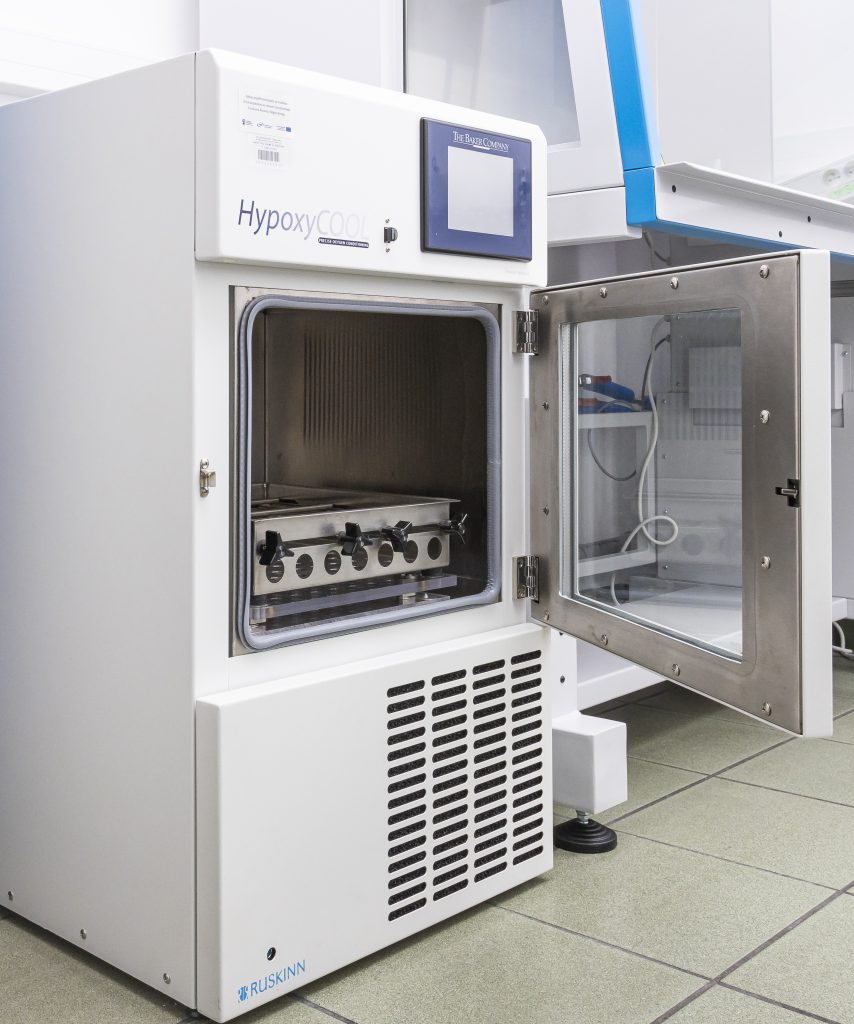
Imaging equipment
LYMPUS FLUOVIEW FV3000 – confocal laser scanning microscope
The confocal microscope enables a wide range of imaging modalities, including macro-to-micro imaging, super resolution microscopy, and quantitative data analysis. Accordingly, it allows to observe objects of various sizes – tissue sections, eukaryotic and bacterial cells, individual cell organelles and nucleic acids.
